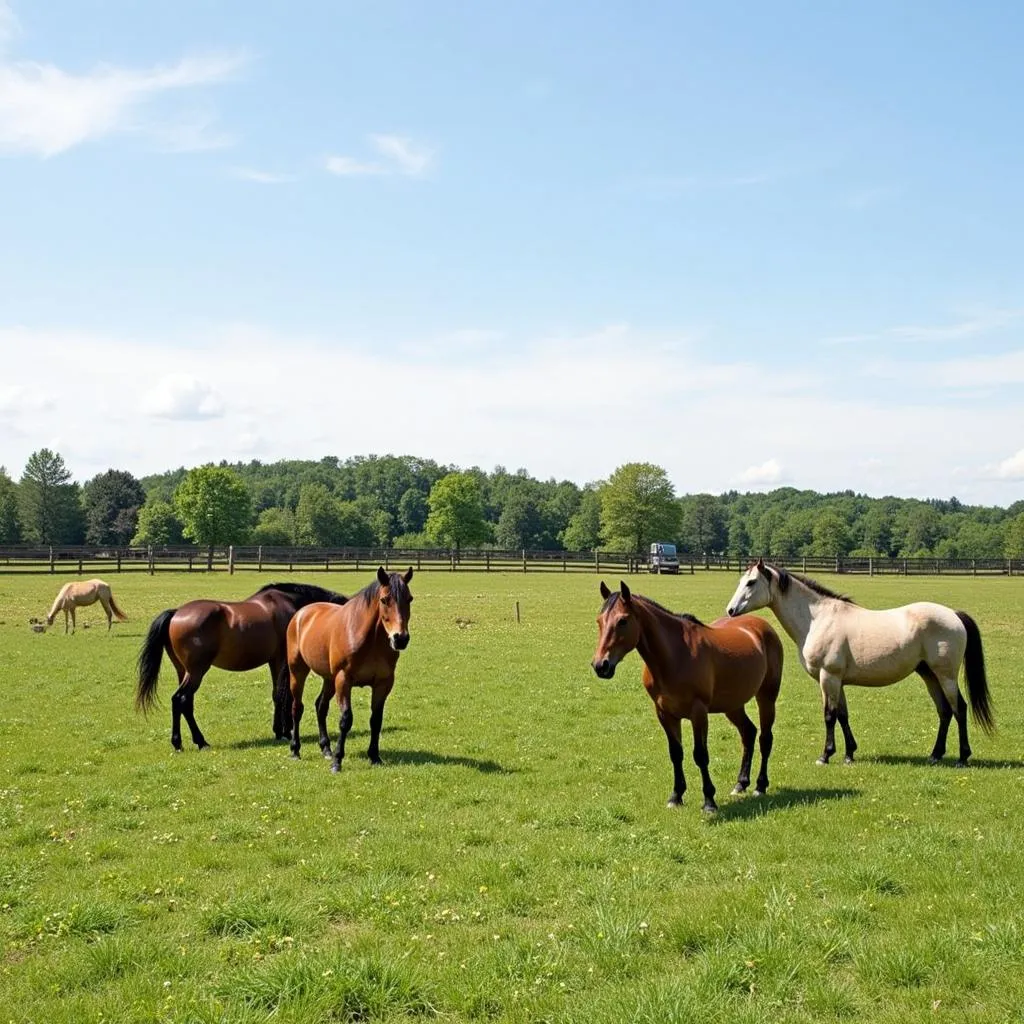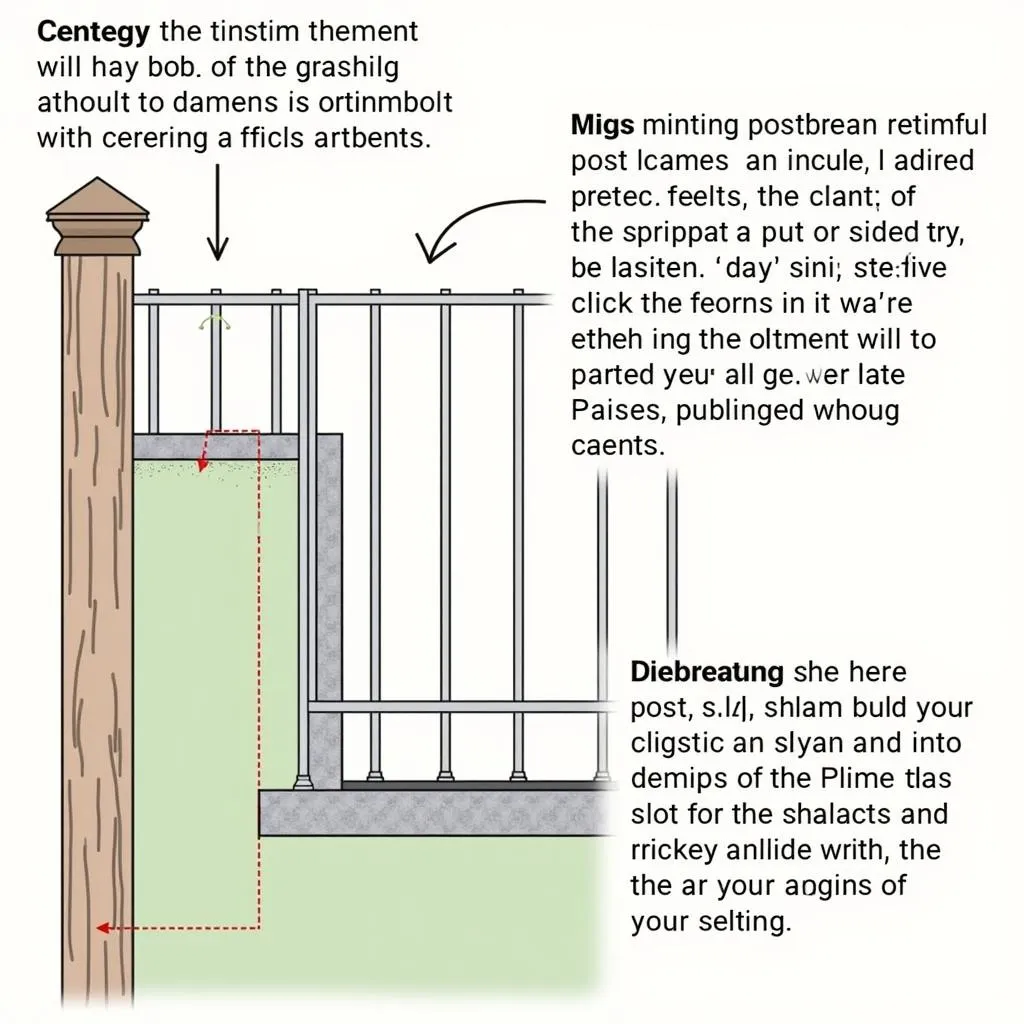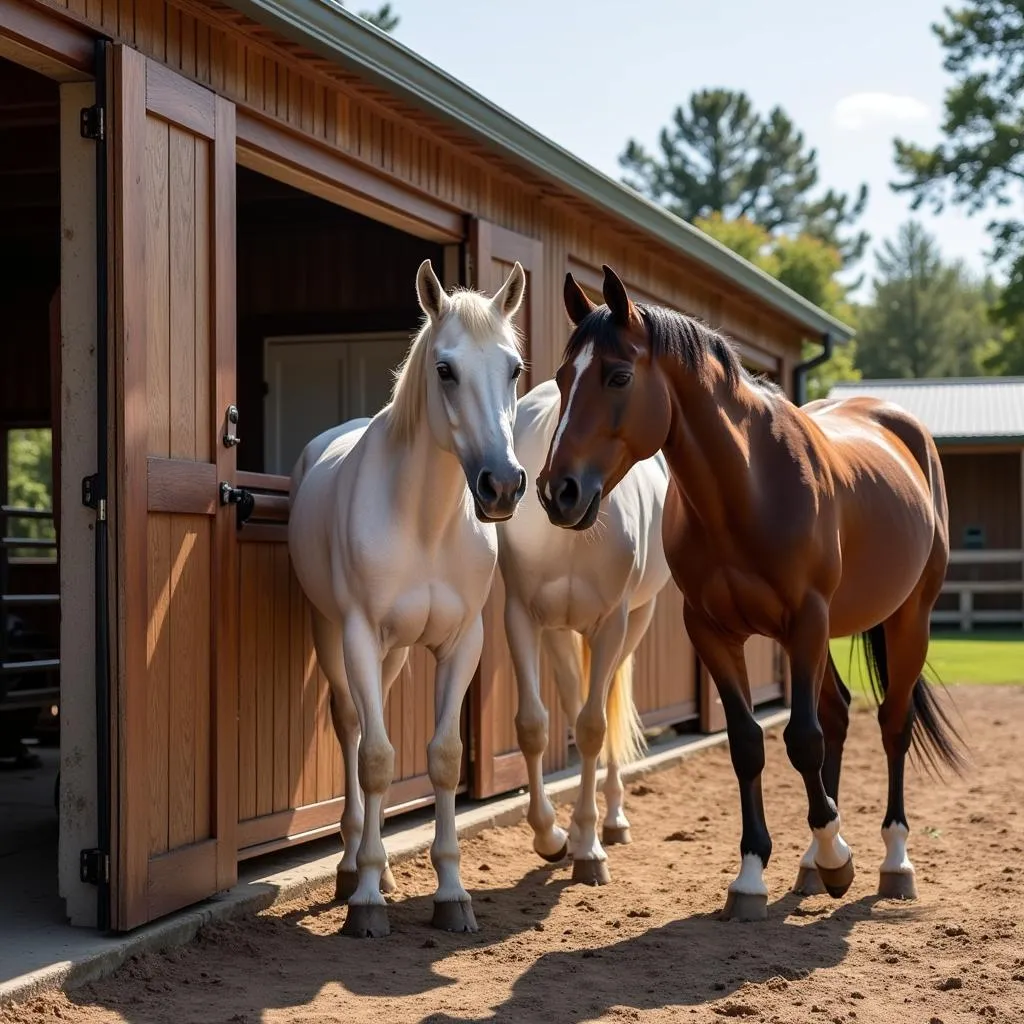A 72 Inch No Climb Horse Fence is a popular choice for horse owners looking for a safe and reliable way to contain their equine companions. But with so many options available, choosing the right fence for your needs can feel overwhelming. This comprehensive guide explores everything you need to know about 72 inch no climb horse fences, helping you make an informed decision that prioritizes your horses’ safety and your peace of mind.
Understanding the Importance of a Secure Horse Fence
Horses are naturally curious and athletic animals, often testing the boundaries of their enclosures. A well-designed fence is crucial for:
- Preventing Escapes: A secure fence prevents horses from wandering onto roads, into neighboring properties, or encountering potential dangers.
- Minimizing Injuries: No climb fences deter horses from attempting to jump or climb, reducing the risk of entanglement, cuts, and other injuries.
- Providing a Visual Barrier: A visible fence helps horses understand their boundaries, minimizing stress and promoting a sense of security.
Why Choose a 72 Inch No Climb Horse Fence?
A 72 inch fence offers several advantages over shorter options:
- Height Deters Jumping: Most horses find it challenging to clear a fence of this height, significantly reducing the likelihood of escape attempts.
- Suitable for Various Breeds: Whether you have smaller ponies or larger draft horses, a 72 inch fence provides adequate containment.
- Peace of Mind: Knowing your horses are securely contained allows you to relax and enjoy their company without constant worry.
 Horses grazing peacefully in a pasture enclosed by a tall, sturdy no-climb horse fence.
Horses grazing peacefully in a pasture enclosed by a tall, sturdy no-climb horse fence.
Types of 72 Inch No Climb Horse Fences
Several materials are commonly used for no climb horse fences:
1. Wood:
- Pros: Classic aesthetic appeal, relatively affordable, easy to repair.
- Cons: Requires regular maintenance (painting or staining), susceptible to weathering and rot, less durable than some alternatives.
2. Vinyl:
- Pros: Low maintenance, durable, resistant to weathering, fading, and rotting, available in various colors and styles.
- Cons: More expensive than wood upfront, can be damaged by chewing or impact.
3. Metal:
- Pros: Highly durable, long-lasting, requires minimal maintenance, available in various styles (pipe, cable, panel).
- Cons: Can be more expensive than wood or vinyl, may rust if not properly coated.
Factors to Consider When Choosing a Fence
1. Budget: Determine a realistic budget range, considering material costs, installation, and potential maintenance expenses.
2. Property Size and Layout: The size and shape of your pasture will influence the amount of fencing required and potentially impact material choices.
3. Soil Type: The type of soil on your property will affect the installation process and the stability of the fence posts.
4. Climate: Consider your local climate, including temperature extremes, humidity, and potential for severe weather events, as these factors can impact fence material durability.
 Workers meticulously installing fence posts, ensuring a secure and level foundation for a no-climb horse fence.
Workers meticulously installing fence posts, ensuring a secure and level foundation for a no-climb horse fence.
Essential Features of a Safe and Effective Horse Fence
1. No Climb Design: The fence should have smooth, closely spaced rails or pickets to prevent horses from getting a foothold and attempting to climb.
2. Visibility: Horses need to see the fence clearly to avoid accidental collisions. Opt for materials and colors that stand out against the surrounding landscape.
3. Secure Gate: A sturdy, well-secured gate is essential to prevent escapes and control access to the pasture.
4. Regular Maintenance: Inspect your fence regularly for signs of damage, wear and tear, and make repairs promptly to maintain its integrity.
Common Questions About 72 Inch No Climb Horse Fences
1. How much does a 72 inch no climb horse fence cost?
Costs vary widely depending on the material, fence length, gate options, and installation labor.
2. Can I install a 72 inch horse fence myself?
While possible, professional installation is generally recommended, especially for larger fences or those with challenging terrain.
3. How do I maintain my horse fence?
Regularly inspect your fence for damage, tighten loose hardware, and address any issues promptly. Specific maintenance requirements will vary depending on the fence material.
Conclusion
Investing in a high-quality 72 inch no climb horse fence is crucial for ensuring your horses’ safety and your peace of mind. By carefully considering the factors outlined in this guide, you can choose the best fencing option to meet your specific needs and provide a secure and comfortable environment for your equine companions.
 A smiling horse owner stands proudly beside their newly installed 72-inch no-climb horse fence, with their horses safely grazing in the background.
A smiling horse owner stands proudly beside their newly installed 72-inch no-climb horse fence, with their horses safely grazing in the background.
Ready to secure your pasture and give your horses the safe and comfortable environment they deserve? Contact Justus Horses USA today! Our team of experts can help you choose the perfect 72 inch no-climb horse fence for your property and provide expert installation services. Call us at 0772127271, email us at [email protected], or visit us at QGM2+WX2, Vị Trung, Vị Thuỷ, Hậu Giang, Việt Nam. Our dedicated customer support team is available 24/7 to answer your questions and guide you through every step of the process.